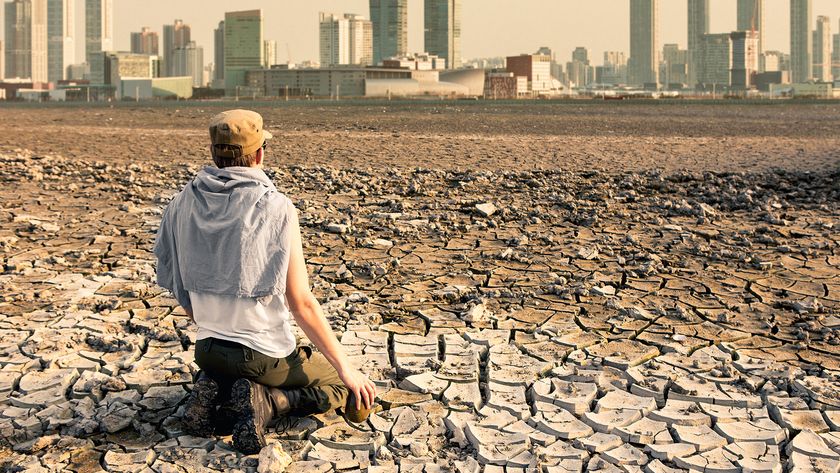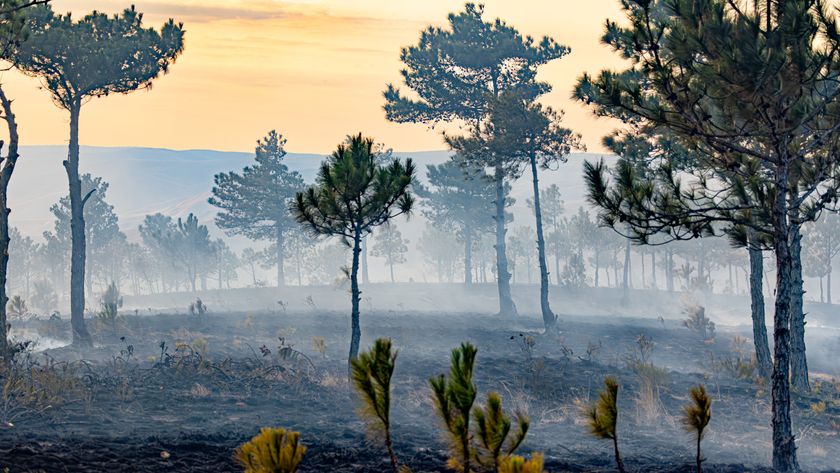
Josh Balk is food policy director at The Humane Society of the United States (HSUS). He contributed this article to Live Science's Expert Voices: Op-Ed & Insights.
After long focusing on fuel economy and energy production, environmentalists and scientists are now promoting a diet of more plants and less meat to slow climate change — but why?
It's a problem with efficiency. Industrial farm-animal production — getting animals from farms to our plates — is inherently inefficient. According to the Food and Agriculture Organization of the United Nations, global animal agriculture produces vast amounts of crops to feed billions of farm animals long before they are themselves consumed. The animals eat this food for months, sometimes even years, before being slaughtered — they are the world's most under-recognized "middle men."
The scope of animal agriculture’s impact on climate change has, for decades, been underestimated. The raising and slaughtering of farm animals is just one component. Raising animals for food also includes feed-crop production — which requires extensive water, energy, and chemical use — as well as energy for transporting that feed, live animals and animal products. The total process for bringing such vast quantities of meat, egg and dairy products to our plates comes at a substantial cost to the environment.
As a result of animal agriculture's impact on climate change , organizations like the Natural Resources Defense Council and the Sierra Club support eating more plant-based meals. The power of making such a subtle change in our lives is remarkable. A Carnegie Mellon University study found that eating plant-based meals — even just one day a week — reduces more greenhouse gases than eating exclusively local foods every day (a practice some people admirably, though mistakenly, think leads to a major environmental impact due to the reduced travel miles to transport the food).
Americans are taking note: Figures from the U.S. Department of Agriculture and the National Agricultural Statistics Service show that our meat consumption is at its lowest level in years. About a half-billion fewer animals are now being raised for food than just several years ago, reducing animal agriculture's global impact.
This is the result of countless people choosing to reduce their meat consumption and participating in efforts like Meatless Monday, becoming "flexitarian," or what New York Times columnist Mark Bittman calls "Vegan Before 6."
Sign up for the Live Science daily newsletter now
Get the world’s most fascinating discoveries delivered straight to your inbox.
According to Gallup, millions of Americans also have become vegetarian or vegan. Dietary strategies have taken hold that further this impact, such as the "Three Rs" endorsed by The HSUS: Reducing or replacing consumption of animal products while refining diets (switching to products from sources that adhere to higher animal-welfare standards).

This growing movement includes former President Bill Clinton and former Vice President Al Gore, both of whom are now eating primarily a plant-based diet. Famed director James Cameron became vegan and advocates meat reduction for conservation reasons. Nature Conservancy CEO Mark Tercek also is vegan and has said on his blog: "As an environmentalist, I think our global consumption of meat is far too high." And former George W. Bush and Sarah Palin speechwriter Matthew Scully is vegan, writing in his book "Dominion," regarding farm animal production, "I know a crime against nature when I see one."
While there is certainly much public and corporate policy work to be done to address global climate change, it's heartening to see leaders and so many others addressing the issue with the force of their forks.
And our individual power is enormous. With more than nine billion animals currently being raised for food in the United States each year, if we all eschewed meat even one day a week — whether it’s a Meatless Monday or any other day — we'd spare more than one billion animals from the horrors of factory farms and avoid the negative environmental consequences linked to their production. With more people sharing our mutual responsibility to reduce carbon footprints by shifting to plant-based meals, we have reason to be hopeful for our planet's future.
Follow all of the Expert Voices issues and debates — and become part of the discussion — on Facebook, Twitter and Google +. The views expressed are those of the author and do not necessarily reflect the views of the publisher. This version of the article was originally published on Live Science.













